EVs written off FAR less frequently than petrol and diesel cars
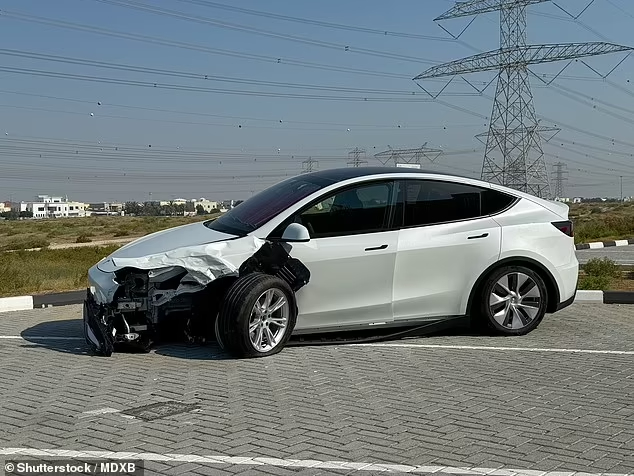
It says combustion engine cars are written off at over double the rate of EVs Despite various reports stating the contrary, a new study has found that EVs are being written off in Britain less frequently than petrols and diesels. Internal combustion engined (ICE) cars are written off at over double the rate of fully electric vehicles, automative data experts Cap HPI says. The study, which examines data from 2015 to August 2024, found 0.9 per cent of EVs under five years old have been written off, compared to 1.89 per cent of petrol and diesel vehicles. A similar gap remains at one year old models, where the percentage falls to 0.2 per cent for EVs and 0.4 per cent for ICE. The report is the latest good news piece surrounding EVs, following claims earlier this week that batteries in the latest electric models now last for 20 years or longer – and generally have a longer lifespan than components in conventional engines. on Clay, identification director at Cap HPI, said: ‘The study challenges one of the many misconceptions about electric vehicles. ‘The data clearly shows that EVs are written off at half the rate of petrol and diesel vehicles. ‘We work hard to provide an accurate picture of the automotive sector to the industry and consumers alike, from valuation data to provenance checks and trend analysis. ‘The motor industry has to collectively address the wave of misinformation around EVs that is present online to enable consumers and fleet customers to make informed and well-balanced decisions about their next vehicle.’ The analysis reveals there are currently 1.25million EVs under five years old on Britain’s roads. Of these, 355,000 are less than 12 months old. According to the latest official car registration figures published by the Society of Motor Manufacturers and Traders, BEV registrations increased 10.8 per cent in August compared to the same time last year and accounted for 22.6 per cent of all new vehicles – the highest market share seen since December 2022. Cap Hpi’s data goes against a number of reports in the last year or so that have made bold claims that EV write offs are far more common. A Reuters report last year warned of a rise in the number of electric vehicles being written off due to minor damage to their battery packs. Pictured: Damaged electric and hybrid cars at UK salvage company Synetiq’s yard in Doncaster https://youtu.be/rY3HJVTyRqA An investigation by Reuters in March 2023 suggested insurance companies are increasingly being left with little to no choice but to permanently take electric cars off the road after minor collisions, which in turn is pushing premiums higher. The report warned of scratched and mildly damaged battery packs ‘piling up in scrapyards in some countries’ with experts saying batteries in expensive Tesla Y SUVs have ‘zero reparability’ because they are a structural part of the car. Further research last year compiled by UK-based automotive risk intelligence company Thatcham Research also warned that EVs are more expensive to repair, take longer to fix and are more commonly written off as a result of damage to their batteries. Its Impact of BEV [Battery Electric Vehicle] Adoption on the Repair and Insurance Sectors report published last July – funded by Innovate UK, the government’s innovation agency – says that road collisions involving an electric car are often ‘catastrophic for the vehicle’. This chart shows the electric vehicle and high voltage battery repairs as a proportion of total repairs Thatcham Research showed the impact of a low severity impact on a Tesla and the damage it can cause to the battery casing, which would then need to be repaired or replaced The casing – in which the batteries are stored – often have a wide structure, making them vulnerable particularly to side-on collisions This is because of a ‘concerning lack of affordable or available repair solutions and post-accident diagnostics’, which often sees EVs written off as uneconomical to be returned to the road. This is most commonly the case if the high-voltage battery pack has sustained damage as a result of a collision. Batteries in electric cars represent a substantial percentage of the original vehicle value and if harmed in anyway often sees insurers deem the cost to repair or replace them exceed the car’s total existing value. The study said the cost of replacement EV batteries varied widely depending on the model – though it is extremely expensive process no matter the car in question. For a premium electric car, for instance, the cost of a new battery is around £29,500, Thatcham Research said. This is more than the price of a new petrol Volkswagen T-Roc SUV. And for ‘budget-friendly’ electric models, it estimates the average cost of battery replacement to be £14,200 – that’s more than a Dacia Sandero, Britain’s cheapest car. Earlier this year, This is Money reported on the difficulties some owners of Chinese EVs were having trying to insure their vehicles. This was due to a lack of available parts and expertise to repair them, which in turn was seeing vehicles being written off for relatively low levels of crash damage. Drivers of BYD and GWM Ora models explained how they were facing extremely steep quotes for cover because only a few insurance providers will underwrite them due to the difficultly to fix them. The government has recognised the need to address misinformation around EVs. Last year, Richard Bruce, director of transport decarbonisation at the Department for Transport, said: ‘I do think there has been an impact from a concerted campaign of misinformation over the last 14 months or so that has been pushing consistent myths about EVs that people absorb and which is reflected in their appetite [for purchasing EVs]. ‘There is an anti-EV story in the papers almost every day. ‘Sometimes there are many stories, almost all of which are based on misconceptions and mistruths, unfortunately.’ *Article published: https://www.dailymail.co.uk/money/electriccars/article-13868267/EVs-written-FAR-frequently-petrol-diesel-cars.html?ico=mol_desktop_moneycars – image(s) extracted from article
NASCAR Appeals Panel Sides with Chase Briscoe, Joe Gibbs Racing, Overturns Major Penalty
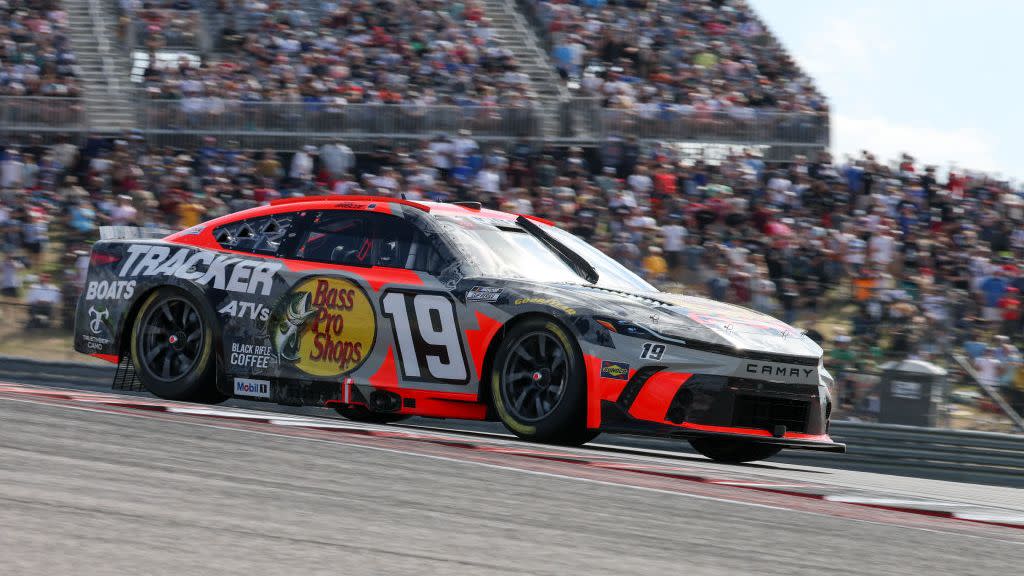
The National Motorsports Appeals Panel has cleared Joe Gibbs Racing of any wrong doing in regard to a penalty NASCAR assessed Chase Briscoe’s team following the season opening Daytona 500. The penalty dealt with the vehicle assembly rules and the Toyota’s spoiler. NASCAR gave a four-race suspension to crew chief James Small, a $100,000 fine to Gibbs and a loss of 100 championship points and 10 playoff points to Gibbs and Briscoe. That left Briscoe, who won the pole for the Daytona 500, 45th in the driver standings after the prestigious race. However, on Wednesday, the Appeals Panel determined that after hearing testimony, JGR, Small and Briscoe didn’t violate the rules set forth in the penalty. “Biggest points day of my career!” Briscoe posted on X (formerly Twitter). “We’re back! “In all seriousness, thank you to NASCAR for giving us the option to show our evidence and huge thank you to everyone at Joe Gibbs Racing, who put in countless hours to put everything together. “A lot of people keep saying I’m lucky to be where I am … Just wanted to clarify that I’m not lucky, I’m blessed.” In reaching its decision, the three-person panel said it believed the elongation of some of the holes on the number 19 Cup car spoiler was caused by the process of attaching that specific spoiler base to the rear deck and not modification of the single source part. The panel was comprised of Dixon Johnston, Hunter Nickell and Cathy Rice. *Article published: https://autos.yahoo.com/never-better-time-buy-used-112232056.html – image(s) extracted from article
Strong wholesale demand supports used car values in August: cap hpi

UK used car values in August remained resilient, with the average value movement at the three-year age point declining by just 0.6%, according to cap hpi, an automotive data company owned by US-based auto software company Solera. This decline is slightly below the seasonal norm for August, which typically sees a 0.7% decrease. The used car market has demonstrated robust performance over the past four months, with values dropping by an average of 0.5% per month and 2% in total. This compares favourably to 2018, dubbed ‘the year of the used car,’ when values fell by 3% over the summer period. Battery Electric Vehicles (BEVs) continue to gain traction among retailers, reflected in improved auction conversion rates. BEVs currently average 1.3 sales attempts before being sold, compared to 1.5 attempts for petrol vehicles. Derren Martin, director of valuations at cap hpi, noted that the price reductions in the final quarter of last year helped stabilise used car values, which had been rising since 2021. He added that while certain models and fuel types have seen value declines due to supply-demand imbalances, overall used car prices have remained stable throughout the year. Retailers continue to face challenges in sourcing vehicles that meet their preferred criteria, particularly as inventory levels remain low due to increased stocking costs. This limited supply, combined with steady demand, has contributed to maintaining price stability. At the one-year age point, used car values also declined by an average of 0.6% (around £250), while older vehicles saw larger percentage drops, with 10-year-old models declining by 2.1% on average (approximately £85). Among vehicle types, MPVs saw the largest decline, with values dropping by an average of 1.3%. However, this decrease aligns with historical trends for this time of year. Meanwhile, the main volume sectors — lower medium (C-Sector), supermini, and SUV — experienced declines of around 0.5%, underscoring the market’s overall stability. Pure hybrids performed the best among fuel types, with values falling by just 0.2% on average, highlighting continued demand for vehicles that bridge the gap between traditional and fully electric powertrains. Petrol cars saw a 0.6% decline, while EVs and plug-in hybrids both experienced average drops of around 1.0%. Although BEVs have seen monthly value declines for the past two years, the rate of decline has slowed, and some models, such as the Audi Q4 E-Tron Sportback and Tesla Model S, have even seen value increases at the three-year age point. Looking ahead, Martin expressed cautious optimism for the final quarter of 2024. He noted that while last year’s significant value drops are unlikely to repeat, the market remains sensitive to potential disruptions, including the impact of manufacturers reducing sales of internal combustion engine vehicles to meet zero-emission vehicle mandates. Responsible remarketing practices will be essential to ensuring continued market stability. “Strong wholesale demand supports used car values in August: cap hpi” was originally created and published by Motor Finance Online, a GlobalData owned brand. *Article published: https://finance.yahoo.com/news/strong-wholesale-demand-supports-used-103520412.html – image(s) extracted from article
What Are The Top 10 Best Used EVs Under £12,000 In The UK?
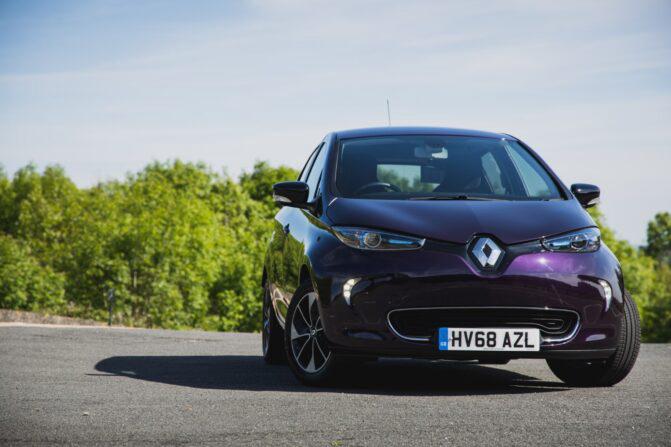
It’s no secret that electric vehicles tend to be a tad more expensive to buy new compared to their equivalent ICE counterparts. The same is true here in the UK, like it is everywhere else, given that EVs are a pretty young concept, so it’ll take time for all the trickle-down economics and the economies of scale to make electric cars truly reach cost-parity with ICE vehicles. So, does this mean that you should avoid buying electric cars now and wait? No, especially not if you know where to look, as the famed automotive data company, cap hpi, wants to showcase. With extensive experience and a vast database of automotive valuation data and knowledge about market dynamics and pricing, they’re the sort of people you could trust to put a dollar figure on your car. Based on cap hpi’s research and analytics, over the past 12 months alone, they found that the average drop in market value for electric vehicles – with mileage around 30,000 miles and three years old – is around £5,000, or 19%. They claim that this is primarily due to market realignment, so it’s not expected to repeat, but it’s interesting, nonetheless. Can You Beat The Electric Car Market? Regardless, with all that data on hand, cap hpi was able to put a list of what they think – and I’m definitely inclined to agree with a lot of these – are the top 10 best used EVs that you can get, with a trade value under or around £12,000. With over 1 million electric vehicles driving around on UK roads today, whittling all that variety down to just 10 isn’t easy, but if you’re in the market for an EV, it might be worth considering cap hpi’s selection, instead. Besides, we know for a fact that EVs often depreciate very heavily once they leave the dealership lot. Therefore, if you want the best bang for your buck, it’s way easier on your pocket to instead opt for a used EV. This is why cap hpi focused on three-year-old electric vehicles (with 30,000 miles on the clock), which is what they’ve found is the sweet spot for used EVs – they’re old enough, but not too old. On top of that, cap hpi further found that used EVs also generally have lower costs of ownership compared to buying one brand-new. Here’s what Chris Plumb, a senior valuations editor at cap hpi, has to say about this: “Used EVs offer a marked saving over new vehicles with low costs of ownership. For the average motorist, there is a used EV to suit most consumer’s daily needs with the added benefit of offering lower carbon emissions.” The Top 10 Best Used EVs To Choose From The folks over at cap hpi have more to say based on their findings, too. They’ve found that it’s indeed proven that electric cars are cheaper to operate than their ICE counterparts. They have fewer moving parts, which aids in lowering maintenance and repair costs. Moreover, if you plan it out right and charge your electric car at home – either through solar power or by using off-peak electricity rates, like charging late at night and in the early morning hours – EVs are cheaper to recharge through the mains than filling your car up with diesel or petrol. So, with that in mind, here are cap hpi’s top 10 best used EVs under £12,000 in the UK today (with the respective model years in parentheses): Make & Model Trade Price SKODA CITIGO (MY19-21) Electric £10,080 HYUNDAI IONIQ (MY19-23) Electric £10,050 FIAT 500 (MY20- ) Electric £9,960 MG MOTOR UK MG 5 (MY20- ) Electric £9,910 KIA SOUL (MY14-19) Electric £9,425 NISSAN LEAF (MY17- ) £9,190 VOLKSWAGEN UP (MY13-24) Electric £8,950 VAUXHALL CORSA (MY19- ) Electric £8,700 RENAULT ZOE (MY19-24) Electric £8,465 SMART FORFOUR (MY20- ) Electric £7,295 *Article published: https://www.motorverso.com/top-10-best-used-evs-under-12000-in-the-uk/ – image(s) extracted from article
Used electric cars are now cheaper than petrol and diesel equivalents
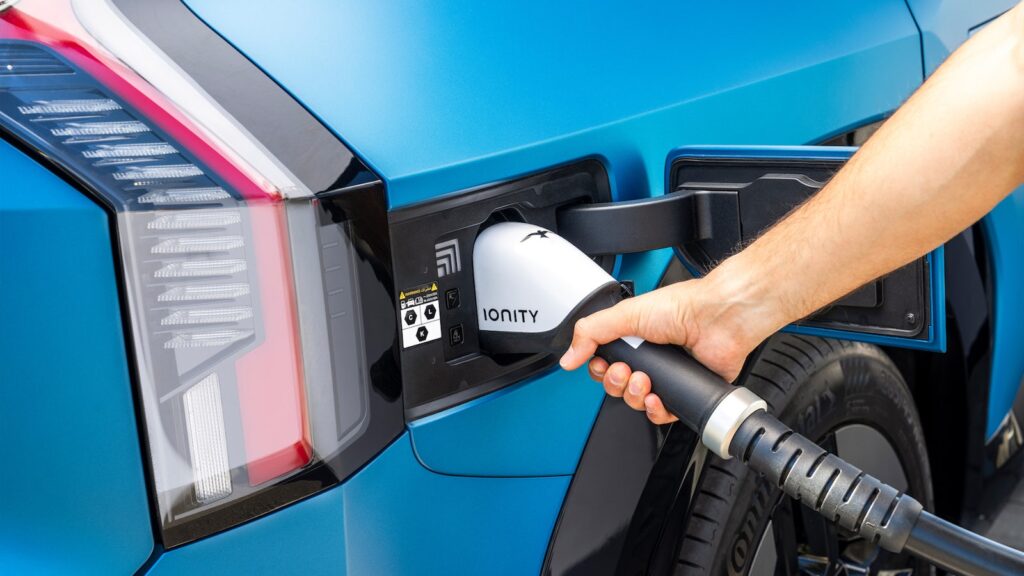
Expert analysis shows prices on forecourts to be 8.5% lower for EVs; helping drive huge surge in used EV sales Values of used EVs have tanked since 2022, bringing prices lower than combustion equivalents Used premium models can be on par with new budget cars Great value to be had on popular models Increased supply of used EVs boosts availability Tesla Model 3 tops used sales charts Time to go electric? Electric cars haven’t just hit price parity with petrol and diesel ones – they’re now cheaper. At least on the used market. Experts have revealed that a used electric car is now significantly cheaper than the equivalent petrol or diesel-engined alternative. The news comes alongside a huge surge in the sales of used electric vehicles (EVs) which has helped fuel a big recovery in used vehicle sales – which see the first six months of 2024 sit just 3% below pre-pandemic levels. Check out our favorite used electric cars here Used EVs cheaper than combustion cars for the first time The price of electric cars is a common complaint and cited as a reason for sales being poorer than car manufacturers need. However, the used market is proving to be the opposite to the world of brand-new models. Analysis by experts at Cap HPI shows the average electric car is around 8.5% cheaper than a petrol or diesel counterpart at three years old. At four years old, the difference is an impressive 14%. Combined with the potential for reduced running costs, EV ownership could now be well within reach of many more motorists than before. Why are used models so cheap? Well, there’s the pace of development. Even in just a few short years, the battery and motor technology has moved on significantly. A used Vauxhall Corsa-e, for example, has a real-world range of around 150 miles, whereas a brand-new Corsa Electric will do 200 miles for a 25% improvement. Consumer confidence in used models can also be weak. In an Autocar poll, 75% of motorists asked cited ‘serious concerns’ about purchasing a used electric vehicle, with the most common of these being wear on the battery from previous owners’ use. This is despite EV battery replacements being very rare, especially in three-to-four-year-old models. The standard warranty cover for electric car batteries is eight years or 100,000 miles, with some manufacturers offering even longer – and this typically covers the battery from failure or degradation below around 80% of its original capacity. Sell your electric car with Carwow Cap HPI’s used EV specialist, Chris Plumb, explained that “the growing availability of second-hand electric models is driving demand as motorists want to reduce their environmental footprint and make significant motoring cost savings due to high diesel and petrol prices”. Used EV bargains Up to £10,000 The very lowest end of the market is reserved for cars like the first-generation Nissan Leaf or, god forbid, the G-Wiz – models that aren’t really very useful in 2024. However, getting closer to the £10,000 mark opens up some brilliant used EVs, such as the Volkswagen e-Golf, BMW i3 or Renault Zoe – all of which have a usable range and are excellent to drive. £10,000 – £20,000 This budget gives you scope to shortlist many more modern EVs, including several which remain on sale today. The Tesla Model 3 is a hugely popular car both new and used, and a four-year-old example is well within this budget. If you want something smaller, the aforementioned Vauxhall Corsa-e is a good small EV. Near the top end, you can find practically new low-mileage 2022 or 2023 models of cars like the MG ZS EV, second-generation Nissan Leaf or Kia Soul. £20,000 – £30,000 At this stage you have the pick of the EV market – you can get great deals on a new model, but another option is to pick up a used premium EV for the price of a new budget one. Models such as the Toyota bZ4X, which are terrible value new, become much more tempting when delivery-miles examples are less than £30,000. Or, opt for something from a proper luxury brand, such as a Jaguar I-Pace or Audi e-tron. £30,000 – £40,000 Some of our all-time favourite electric cars are options at this price. The Hyundai Ioniq 5, BMW iX or Kia EV6 are all available for less than £40,000. Desirable models with hugely impressive stats, such as the Tesla Model 3 Performance, are also tempting options. Boost in EV sales helps recovery of used market The uptick in sales of used electric cars has helped the used car market as a whole. Data from the Society of Motor Manufacturers and Traders (SMMT) revealed over 1.96m transactions in Q2 – 7.2% more than the same period last year, and 6.8% up year-to-date. Sales of used EVs, meanwhile, rose by an impressive 52.6% year-on-year. The resulting boost sees overall car sales just 3% lower than they were pre-pandemic, signifying a recovery in the market. SMMT chief executive Mike Hawes said: “It’s encouraging to see the used car market continue its recovery, with choice and affordability rejuvenated by the new car sector’s sustained run of growth. “The increased supply of electric vehicles to second and third owners is helping more motorists make the switch – underlining the importance of energising the new EV market to support a fair transition for all. “Maintaining momentum requires reliable, affordable and green EV charging up and down the country, and incentives to get all of Britain on board the net zero transition.” Looking for an easy way to change your car? Then Carwow is the place to go. You can sell your car online for a great price, and get the best deals on a new one. All through our network of trusted dealers and all from the comfort of your home. Tap the button below to get started today. Change your car the easy way *Article published: https://www.carwow.co.uk/news/7858/used-ev-prices#gref – image(s) extracted from article
Used car values decline slightly in July: cap hpi
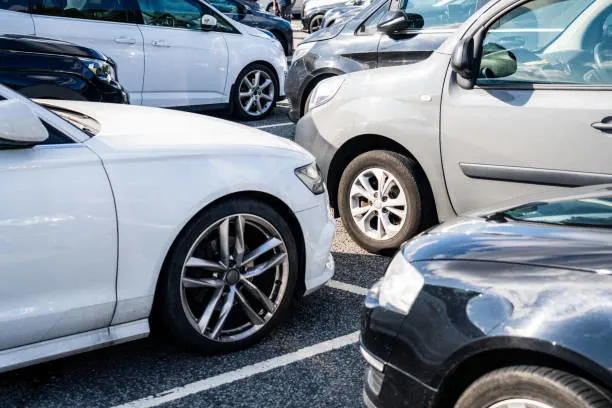
In July, the average value of used cars decreased by 0.4%, equating to around £70 at three years and 60,000 miles, according to cap hpi, a provider of software and data for the automotive industry. This contrasts with the average decline of 1.1% seen since 2012, when Cap Live was first introduced, indicating a mixed market. Values at the one-year mark fell by 0.6%, approximately £190. Older cars saw marginal declines, with values dropping by 0.6% (£55) at five years and 1.6% (£60) at ten years. Used car values, July 2024 Mainstream sectors exhibited varied performance. Lower Medium (C segment) cars experienced the largest drop at 0.9%, followed by Sports at 0.8%, and City Car and Supermini both at 0.6%. SUVs showed the strongest resilience, decreasing by only 0.3%. Jeremy Yea, senior valuations editor at cap hpi, commented on the trends: “The data highlights the strength of the used market as a whole and especially for the SUV sector, which makes up nearly 60% of our used sold data up to three-years-old.” Battery Electric Vehicles (BEVs) faced more pressure than other fuel types, with a decline of 1.0% or about £135 at three years and 60,000 miles. Yea noted, “The rate of decline in BEV values has shown signs of improvement, with the -1.0% movement being the strongest month for BEVs so far this year.” Among BEV models evaluated at the three-year benchmark, 10% saw value increases, a slight improvement from 7% the previous month. Meanwhile, 20% of models maintained their value, and 70% saw declines. Notable value increases included the Polestar 2 (up 2.3%), Tesla Model X (up 2%), and Kia E-Niro (up 2% or around £240). The Cupra Born, Tesla Model Y, and VW ID.3 models that remained steady. The VW e-Up faced the largest decrease at 5.1%. Petrol vehicle values fell by 0.4%, diesel by 0.2%, hybrids (HEV) by 0.4%, and plug-in hybrids (PHEV) by 0.6%. All fuel types outperformed the seasonal average monthly reduction. Some models saw notable increases in value: the Dacia Duster Diesel and the Range Rover Sport Petrol Hybrid rose by 3% and 4%, respectively. The BMW X4 Diesel (4%/£1,170), Nissan Qashqai Diesel (3%/£365), and Toyota RAV4 Hybrid (2%/£400) also appreciated. Models that maintained their value included the Peugeot 508 Diesel, Mini Countryman Petrol, BMW 2 Series Gran Coupe Petrol, Mercedes GLA Diesel, and Kia Sportage Petrol. Looking ahead, Yea remarked, “August will likely see more retail consumers prioritising their holidays over purchasing a new or used car, so consumer buying activity could be a little more muted during the summer holiday period. This may not dampen dealers’ appetite to buy used stock when given the chance. With fewer used cars likely to be returned to the market in the run-up to the September registration month, this could keep things slightly more positive than the usual seasonal average movement. As always, keeping close to daily Cap Live values remains paramount for all fuel types as demand and supply dynamics play out differently for different models.” In 2008, Solera, a provider of vehicle lifecycle and fleet management software-as-a-service, data, and services, acquired cap hpi. Used EV prices drop 43%, demand increases: INDICATA Global EV sales hit record high in Q2 2024: New AutoMotive “Used car values decline slightly in July: cap hpi” was originally created and published by Motor Finance Online, a GlobalData owned brand. *Article published: https://finance.yahoo.com/news/used-car-values-decline-slightly-091510992.html – image(s) extracted from article
HPI expands data set to enhance vehicle provenance checks

HPI is extending its data set through a new partnership with integrated vehicle recycler Synetiq which will provide vital information on salvage total loss vehicles processed through its facilities. This expansion is part of Cap HPI’s integration of data from risk and asset management data provider Audatex which supports over 2 million vehicle assessments annually and 85% of UK insurance claims. The enhanced data set will allow HPI Check users to access more comprehensive vehicle histories, including detailed records of incidents and total loss. Cap HPI data indicates that one in three cars has a hidden history or outstanding finance. Hugh Leslie, IT director for Synetiq, said: “We continue to invest in pushing standards forward across the industry, and our new data agreement with Cap HPI will help to keep consumers and the supply chain informed about the vehicles they buy. Everyone in the industry must play their part to increase transparency and raise standards.” Jon Clay, identification director at Cap HPI, said: “The data agreement with Synetiq and the integration of Audatex data are part of our ongoing journey to enhance the HPI Check. As technology and data advance, we can connect parts of the industry to increase transparency. We layer information to provide a richer picture of every vehicle.” Clay stressed the importance of ethically collected and reliable data, noting the significance of the partnership with Synetiq in achieving this milestone. “The data agreement with Synetiq and the integration of Audatex data are part of our ongoing journey to enhance the HPI Check. As technology and data advance, we can connect parts of the industry to increase transparency. We layer information to provide a richer picture of every vehicle.” *Article published: https://www.am-online.com/news/hpi-expands-data-set-to-enhance-vehicle-provenance-checks – image(s) extracted from article
Cap hpi links with Temcover to help dealers speed up car sales

Tempcover and cap hpi have teamed up to help dealers close more sales. The short-term insurance provider offers cover from one hour to 28 days to help dealers improve post-purchase service to buyers. Flexible driveaway insurance allows buyers to drive their new purchase and have time to shop around for the best insurance deal on their new vehicle. It helps dealers close the sale and have the customer take the car within minutes. Nick Brunton, director of partnerships at Tempcover, said: “We’ve developed an insurance product with dealers in mind. Tempcover helps to close more sales and improves the purchase experience for buyers. We feel that every dealer would benefit from Tempcover thanks to the flexibility it adds to every buying journey.” Tempcover has partnered with cap hpi to reach dealers across the UK and explain the benefits of the insurance product. A streamlined process enables customers to generate a quote in under two minutes without dealer intervention. Documents are emailed immediately to insure customers. The insurance company is running TV and radio adverts to build brand awareness with consumers. Tempcover is authorised by the FCA and was the first InsurTech to launch a driveaway insurance product. Jon Dennis, UK sales director at cap hpi, said: “The driveaway protection that we offer with Tempcover will speed up the car-buying process for our dealers’ customers. “Buyers can make sure they can drive a car on the same day. It also gives them time to consider the advantages and disadvantages of their long-term insurance options, which is another fantastic selling point.” *Article published: https://www.motortrader.com/motor-trader-news/automotive-news/cap-hpi-links-temcover-help-dealers-speed-car-sales-19-07-2024 – image(s) extracted from article
Craig Bridgman appointed to cap hpi’s valuations team

Craig Bridgman has been appointed as a senior editor on the valuations team at cap hpi, an automotive data business. In his new role, Bridgman will collaborate closely with the valuations team to expand the company’s extensive reach within the automotive sector. He will report to Derren Martin, Director of Valuations at cap hpi. Bridgman brings 25 years of experience in the automotive industry, specialising in sales, leasing, data analysis, research, and market insight. Before his appointment, Bridgman served as a principal consultant at cap hpi for two years. His previous roles include auction sales manager at Motability Operations, where he managed the remarketing of ex-contract lease vehicles and oversaw used vehicle inspections and valuations for 14 years. Bridgman also worked with manufacturers such as Saab and Vauxhall. Commenting on his appointment, Bridgman said, “This is a great opportunity, and I’m excited to be joining the most reputable valuations team in the industry. With leading-edge technology at its disposal, cap hpi’s data and insight are respected across the entire automotive sector.” cap hpi supports the automotive ecosystem, including OEMs, dealers, fleets, and the remarketing sector, and provides consumers with HPI vehicle checks and valuation products. Derren Martin, director of valuations at Cap HPI, said: “We are continually looking at new ways to enhance the data and technology we provide to the industry, balancing innovation with the recruitment and retention of industry-leading professionals who have a wealth of valuable experience” “Craig Bridgman appointed to cap hpi’s valuations team” was originally created and published by Motor Finance Online, a GlobalData owned brand. *Article published: https://finance.yahoo.com/news/craig-bridgman-appointed-cap-hpi-141530233.html – image(s) extracted from article
Cap Hpi Announces Toyota Aygo As 2024 Used Car Of The Year

Automotive data company cap hpi has revealed the winners of its Used Car of the Year Awards for 2024. The awards are based on a comprehensive data-led judging process that evaluated various factors, including residual value performance and new car registrations. The Toyota Aygo emerged as the overall winner, also securing the City Car of the Year title. The Toyota Aygo impressed cap hpi’s team of automotive experts and analysts with its economical nature and low running costs. Tesla’s Model 3 was named Battery Electric Car of the Year. In the SUV category, the Dacia Duster, Kia Sportage, and Volvo XC90 won in the small, medium, and large SUV categories, respectively. Derren Martin, director of valuations at cap hpi, commented: “It has proven to be a vintage year for the cap hpi Used Car Awards. The awards were informed by an extensive review of the data to select the best car in each category and an overall winner. We are pleased to announce the winners from our partners across the industry.” The winners across various categories are as follows: Mark Turnbull, director of OEM and consulting at cap hpi, remarked: “The automotive industry continues to raise the bar in terms of innovation and quality. The strength of the models in this year’s judging is a testament to the health of the sector.” This statement underscores cap hpi’s commitment to recognising excellence in automotive performance. About cap hpi and Solera Holdings, Inc. cap hpi provides decision support data and software solutions spanning vehicle valuation, validation, collision, mechanical repair, and total cost of ownership. The company helps users make informed automotive decisions by offering a comprehensive source for data and software solutions that cover every aspect of a vehicle’s lifecycle. The company operates from an international hub in the UK, ensuring consistent and high-quality systems, coding, data collection processes, and valuation methodologies across all markets. Local industry experts manage valuations and forecast data to enhance accuracy. cap hpi is part of Solera Holdings, Inc., a global leader in vehicle lifecycle management software-as-a-service, data, and services. Solera serves over 280,000 global customers and partners in more than 120 countries. Pictured: (left to right) Jenny Justice, senior manager, remarketing services at Toyota; Alexandra Dixon, used vehicle programme specialist at Toyota. Category Winner Overall Used Car of the Year Toyota Aygo City Car of the Year Toyota Aygo Supermini of the Year Dacia Sandero Lower Medium Car of the Year Vauxhall Astra Upper Medium Car of the Year BMW 3 Series Executive Car of the Year BMW 8 Series MPV of the Year Dacia Jogger Small SUV of the Year Dacia Duster Medium SUV of the Year Kia Sportage Large SUV of the Year Volvo XC90 Battery Electric Car of the Year Tesla Model 3 Small Van of the Year Volkswagen Caddy Medium Van of the Year Ford Transit Custom Large Van of the Year Mercedes-Benz Sprinter *Article published: https://www.drivespark.com/four-wheelers/2024/used-car-of-the-year-awards-2024-highlights-011-49689.html – image(s) extracted from article
